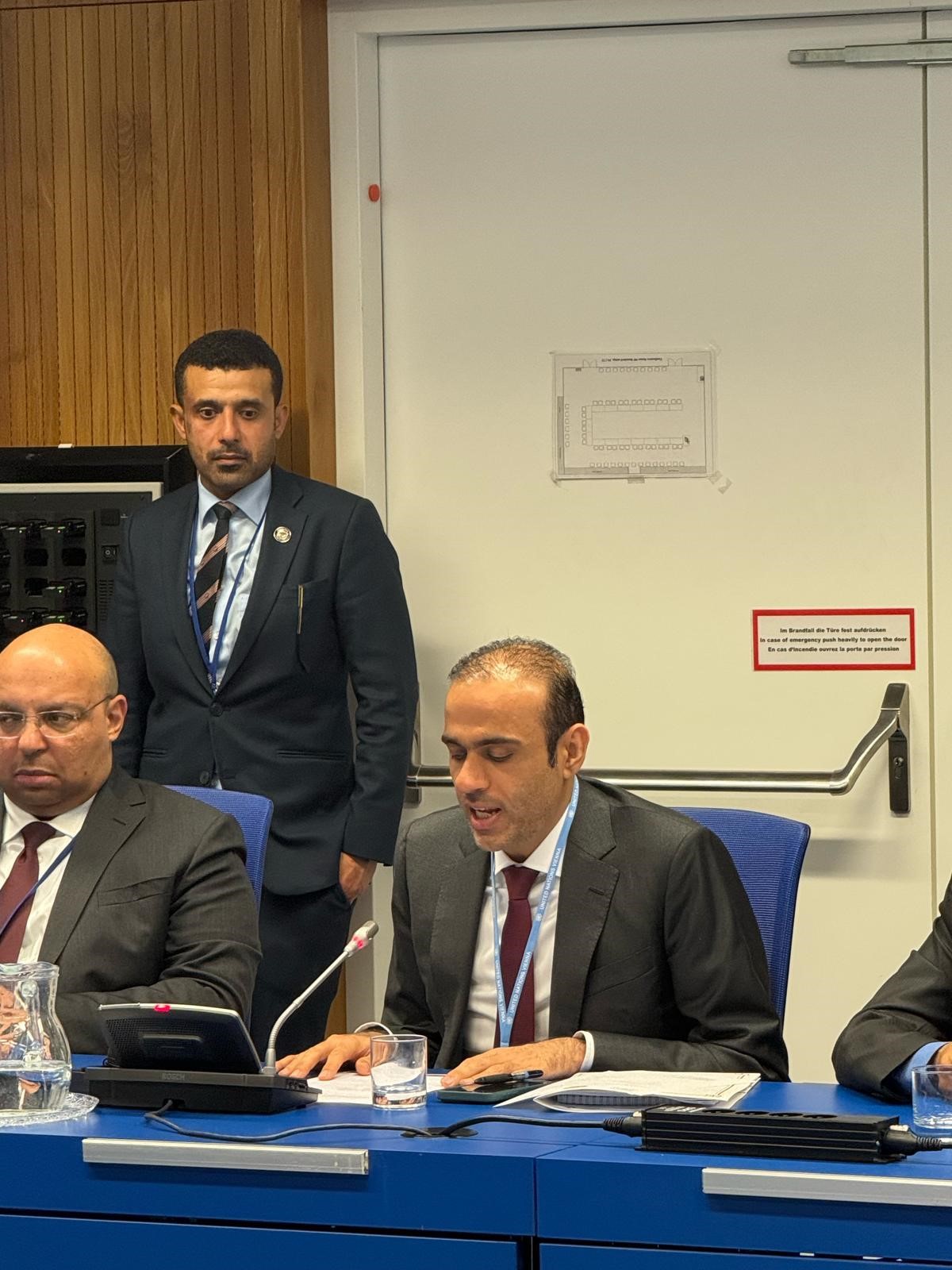Qatar Affirms That Combating Cross-border Human Trafficking Requires a Collective Response Built on Partnership, Coordination

Vienna, May 20, 2025
The State of Qatar emphasized that combating cross-border human trafficking requires a collective response based on partnership and coordination, with a well-distributed division of roles and responsibilities to ensure tangible and sustainable results on the ground.
This came in a statement delivered by HE Qatar's Ambassador and Permanent Representative to the United Nations and international organizations in Vienna, Jassim Yacoub Al Hammadi, during the high-level Gulf side event held on the sidelines of the 34th session of the Commission on Crime Prevention and Criminal Justice in Vienna, titled "Enhancing cooperation between source and destination countries in preventing human trafficking.”
In his remarks, His Excellency stated that human trafficking is a crime that violates human dignity and exacerbates developmental, economic, and social challenges. He highlighted that it is not just a national issue but a global one, with severe consequences, particularly in less-developed countries or those suffering from humanitarian crises, describing it as a gross violation of human rights as enshrined in religious teachings and international conventions.
He added that from this perspective, Qatar has made combating this crime a national priority, in line with its National Vision 2030, which emphasizes social justice and the protection of all individuals from all forms of exploitation.
His Excellency explained that Qatar has translated this commitment into institutional and legislative actions, most notably the establishment of the National Committee For Counter Trafficking. This committee serves as the national coordinator for monitoring and preventing human trafficking in collaboration with relevant state authorities. It is also responsible for implementing a comprehensive national strategy, based on four main pillars: prevention, protection, prosecution, and international partnership.
He noted that the committee recently launched its National Plan (2024–2026), which aims to unify national efforts across government institutions and civil society organizations to combat all forms and types of human trafficking. This initiative is rooted in Qatar's commitment to Islamic law, the constitution, and laws that prohibit any form of degradation of human dignity and emphasize respect for human rights.
HE Al Hamadi also highlighted the committee's dedication to developing an effective system for protecting victims, including identifying and providing necessary support, establishing specialized shelters, training relevant personnel, and launching multilingual awareness campaigns targeting at-risk groups.
He continued that believing that the fight against human trafficking can only succeed through cooperation between both source and destination countries, Qatar has placed special emphasis on building partnerships based on mutual respect, knowledge exchange, and the enhancement of best practices - particularly in cooperation with United Nations agencies and relevant entities.
His Excellency reaffirmed that addressing this crime is inseparable from the sustainable development agenda, particularly Goal 8.7, which calls for the eradication of forced labor, human trafficking, and child labor in all its forms. He stressed that there can be no sustainable development without the protection of human rights, and no justice without safeguarding the most vulnerable from exploitation.
His Excellency renewed Qatar's commitment to continue working with international partners to develop an effective collaborative approach that contributes to promoting justice, protecting human dignity, and building a safer, fairer world.

